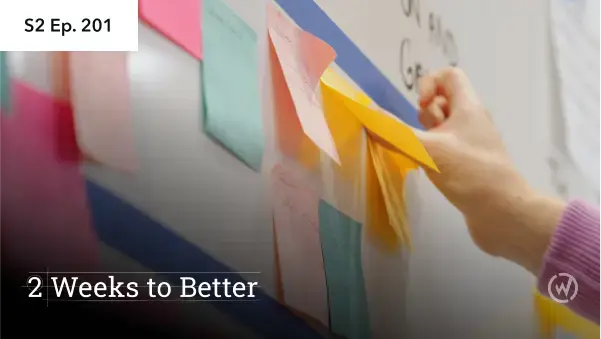
Schedule your workshop today



Stephanie [00:00:05] When clients are coming to us saying, "I want to use AI," the first question is: what problems are we solving for people? Because ultimately, at the end of the day, we're looking to use this data and this technology to solve problems. And so this workshop really reorients us to that customer journey, that consumer journey, and thinking about: what are the opportunities to delight, what are the opportunities to problem solve? What are the opportunities to make it easier? And that's what this workshop really talks about.
Conner [00:00:33] AI is often a hammer looking for nail. And so the purpose of starting with the customer journey is making sure that we actually know where the nails are so that we're swinging hammers at the right stuff.
Stephanie [00:00:43] The first point that we identified was really that first opportunity to impress the client. They have the card in hand. We want them to activate it. We want them to use it. We want it to be top-of-wallet for them and top-of-mind. And so that's a really critical opportunity to engage them.
Andrew [00:00:59] My wife has had her new debit card on my desk for the past year and a half. And it's like, "I'll get to it after I'm done doing the dishes, putting the kids to bed, cleaning up the house for the 57th time," so it's anything you can do to remove that friction, especially with our short attention spans and busy lives these days.
Jill [00:01:15] I think one of the ways that AI can make the customer experience better is using the data that customers are creating themselves — their own data — work for them.
Jill [00:01:22] So there's a lot we know about what the users want, what their financial profile is, so why not give them an introduction to the card that's very tailored to their spending behaviors, what they hope to get out of the rewards, so make it both exciting but also educational. So they know their APR, they know how to use the card.
Stephanie [00:01:42] So with the Ordeal, what we really want to look at is a few KPIs here. We want to be monitoring our fraud. We want to reduce the amount of fraudulent transactions that are happening. At the same time, we also want to make the process easy for our customers to verify whether or not it is a fraudulent purchase.
Bekkah [00:01:59] I would want push notifications. I want the user to have access both to information about why their card was blocked — make that extremely clear — and to give them multiple options. Like we were saying, not everybody wants to jump on the phone, so I should have access to a chatbot that is very tailored to my needs and able to handle my questions, as well as the option to get straight to a human.
Andrew [00:02:24] Give me a push notification when this thing is declined. And then also, in that push notification, give me a button that's just like "Add your new card to Apple Wallet." Solve my problem for me immediately, I don't want to talk to anybody, I just want a new credit card. Right. So cancel it, give me a new one. And I think you could do some cool stuff around, like, if the location where the card was declined and the location where I am by my phone is the same location, you could have a threshold of validity, like "Okay, we think this is probably Andrew using his card. Let's go ahead and just issue him a new one instantly." And then the physical copy can come in the mail later.
Conner [00:02:57] I mean, a lot of these ideas all converge around these ideas of taking data, whether it's data from my devices about my location, data about my transactions, data about my behaviors and my personal preferences and packaging that in a way that is really unique and personalized to me. Maybe I'm a person who wants to talk on the phone. Maybe I'm a person who wants literally no interaction with a chatbot system or person at all, and I just want it to happen "auto-magically." And what is that appropriate amount of benign friction for me and my needs in order to feel like I can emotionally trust this brand?
Jill [00:03:31] What really jumped out at me in the workshop that we just completed with respect to financial services was that there was actually a lot of talk about the human experience. Really, those who are going to set themselves apart are the companies who can really discern: when does this moment need human touch, and what is so rote and routine that we can outsource it to AI?








